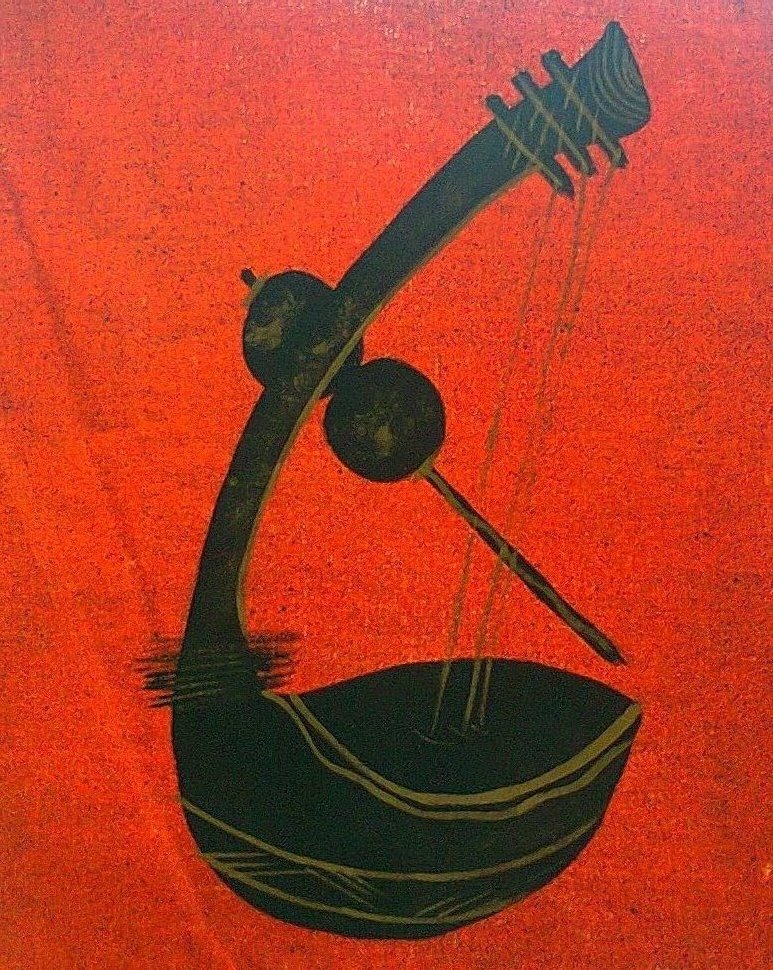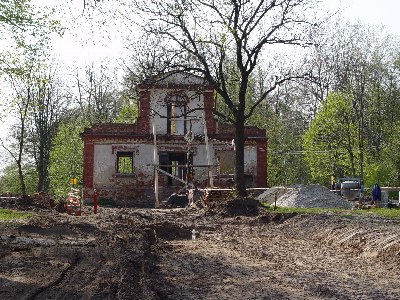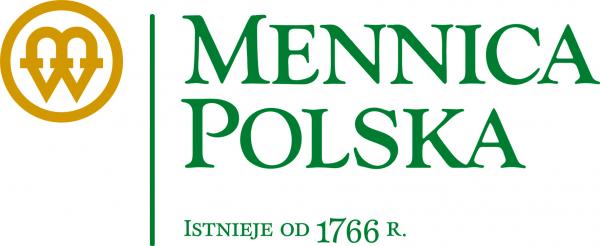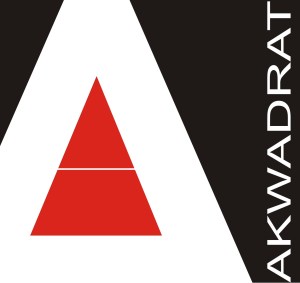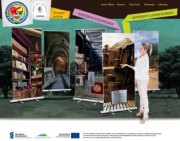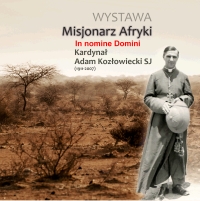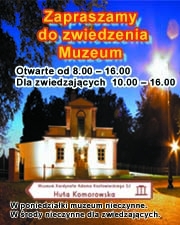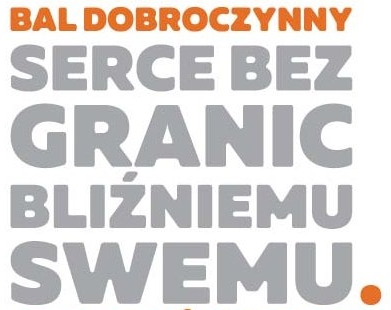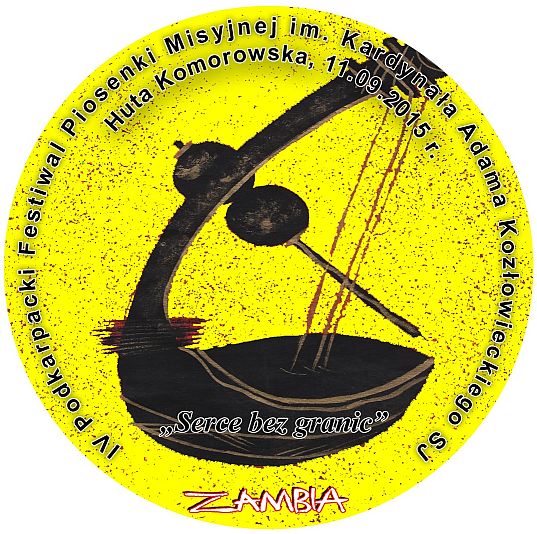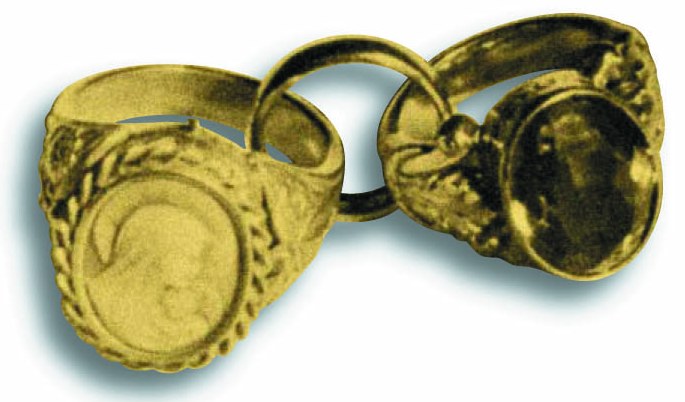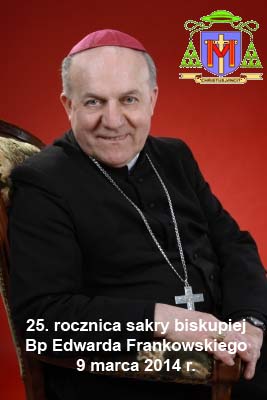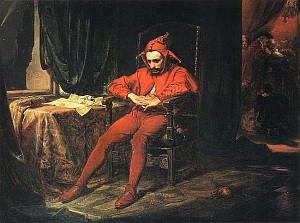MUZEUM GUIDE
Patron of the Foundation and Museum – Cardinal Adam Kozlowiecki SJ (1911- 2007) was one of the most distinguished Polish missionaries, who fulfilled his ministry in Zambia for sixty-one years. This extraordinary man renounced his noble title and family property, then he joined the Jesuit order. As a priest, he spent five and a half years in Nazi extermination camps – Auschwitz and Dachau. After terribly painful war experiences, he went as a volunteer to Africa – Northern Rhodesia, present-day Zambia. Once again, he gave up his plans, accepting the will of God. He was a builder of local churches, schools, houses for teachers and hospitals. His work found quick recognition from his superiors, who in turn entrusted him with the most important church offices in Zambia. As Archbishop, after 1964, he repeatedly gave up the archbishopric for almost five years, so that a black priest could stand at the head of the Church of Zambia in his place. At the age of 87, he was raised to the dignity of cardinal. Adam Kozłowiecki was a friend of Pope John Paul II, a participant in the Second Vatican Council, a human rights defender who had contributed to gaining full independence by Zambia in 1964, and at the same time – above all – an extremely modest and humble missionary. For his achievements, he was honoured with the highest French, Zambian and Polish awards. He was greatly esteemed throughout the world; he knew five popes and two queens, and had a command of ten languages.
The first room – Biographical. The family house, Palace of the Kozłowiecki family, had 55 rooms; next to it stood a manorial annexe which has survived to this day and hosts the museum at present. The palace was destroyed in 1955. There have remained only the annexe, a hen house and a barn. In the photographs you can see the parents of Cardinal Adam Kozłowiecki SJ, Mary and Adam Sr Kozłowiecki, his grandmother and great grandfather (Mary and Adam Kozłowiecki had three sons: Jerzy, Czesław and Adam). After finishing a school in Poznań and after passing a school leaving examination, young Adam Kozłowiecki disclaims all property in the Magistrates’ Court in Kolbuszowa, and goes to the Jesuit seminary in Stara Wieś near Brzozów. He begins his studies in Lublin and Kraków.
It is worth mentioning that in the park during World War II, in Kozłowiecki’s estate, a forced labour camp for Jews (1942-1943) and a penal labour camp for Poles and Russians (1944-1945) were organised. The exhibition also presents photos of Cardinal’s mum and grandma as well as his brothers, and photographs taken in 1970, when he came from Zambia to Poland after World War II for the first time. Among the photos, we can see young Adam with his grandma, mum and brothers. In the photographs, he is with his friends and acquaintances from Kraków, Poznań and Chyrów …
In 1998, the residents of Majdan Królewski and Huta Komorowska attended the ceremony of awarding Kozłowiecki with the title of cardinal by Pope John Paul II. Then the school in Huta Komorowska was named after Cardinal Adam Kozłowiecki.
Family tombs: Cardina’s mum is buried in Kraków, his dad in Majdan Królewski, brother Czesław in Sanok, and the other brother in Canada.
In the next room “Bishop, Archbishop and Cardinal”, we have memorabilia brought from Lusaka by the President of the Foundation His Excellency Bishop Edward Frankowski, the Bishop of Sandomierz. In the showcases we have books, memorabilia brought from Lusaka/Zambia, a passport, glasses, a watch, pilgrim ID cards; also, a book containing a biography of Adam Kozłowiecki, photos from audiences with Popes John XXIII, Paul VI, John Paul II and from the Second Vatican Council. Additionally, you can see a biretta, a cardinal belt, a zucchetto, cassocks and liturgical vessels as well as a black ebony altar to celebrate the Mass in the bush. There is also a portrait of Cardinal brought by nuns from Africa who pointed out that Africa had already regarded Adam Kozłowiecki as a saint; mitres, very modest ones; clothes, decorations and medals: the Order of Freedom of the Republic of Zambia – the Grand Commandery of the Order of Freedom, the Commander’s Cross of the Order of Merit, the Grand Cross of the Order of the Rebirth of Poland, the French Legion of Honour, the Doctorates Honoris Causa from the University of Nairobi and the Cardinal Stefan Wyszyński University; the diploma of the Legion of Honour from 2006. In the showcases, we can also see a commemorative stamp and envelope on the occasion of the hundredth anniversary of Cardinal’s birthday. The Mint of Poland released a commemorative medal on the same occasion – the Board of Podkarpackie Province posthumously awarded Cardinal the title of “Merited for the Podkarpackie Province”. Right next to it, you can see a worn-out crozier with blue turquoises and a statuette “A Heart Without Borders” – awarded to people of merit who are engaged in missionary work.
We invite you to explore other rooms in the cellars below the annexe. Please go in the direction of the exit and then on the right side of the building to the rooms located in the cellars.
Camp room. Here are placed memorabilia such as pictures and photographs from the time of World War II: Cardinal’s camp stole, young Fr. Kozłowiecki arrest document, original photos from the camp in Dachau, and three editions of the book entitled ”Oppression and distress”/”Ucisk i strapienia” (1967, 1995, 2008) written by Cardinal Adam Kozłowiecki immediately after the liberation in 1945, in which he described day after day spent in a German/Nazi extermination camps in Auschwitz and Dachau. In the showcases we also have a drawing depicting the starvation to which the prisoners in the concentration camps in Auschwitz and Dachau were subjected to, photos of children and Polish women who were subjected to medical experiments by Germans during the Second World War. It is worth reminding that during World War II, in Dachau every third prisoner was a Polish priest. Adam Kozłowiecki treated his executioners with deep faith and prayer, and with great mercy.
Kozłowiecki, forgiving them after the war, repeatedly told in speeches and sermons: “Hatred is senseless… Love builds schools, hospitals, churches, orphanages, seminaries, and hatred demolishes, ruins everything…. We are all children’s of the same, one God and we should always respect one another mutually…”. The next showcase is devoted to the post-war years. We present there a profile of a man who, during Cardinal’s visit in Poland, was a secret agent of the Security Service /so-called “TW”, that is “Tajny Współpracownik (Służb Bezpieczeństwa)” or its secret collaborator).
The last showcase presents the confreres from the camps, St Maximilian Maria Kolbe, who gave his life for a brother, and documents of an eyewitness of those camp days, Bronisław Grzyb, who survived a camp and bore witness to those cruel, inhuman days.
African Room – presents memorabilia of Cardinal Adam Kozłowiecki – the pilgrim, who photographed life in missionary Africa on daily basis, as a missionary. Throughout his whole life he went on pilgrimages to the faithful living hundreds of kilometres away, from station to station. We have there sun caps, bags, rosaries, toiletries, a watch, a book entitled “Insects of Zambia” and contemporary memorabilia from Zambia, i.e., a fork and a spoon, a Zambian T-shirt and a cap. We also present genuine prayer books and scriptures as well as Zambian-English dictionaries; a picture with the inscription “Jesus, I trust in You.” in the Bemba language, and letters, so-called circulars, characteristic of Cardinal. Adam Kozłowiecki wrote them in a number of more than 60 thousand, asking for help for missions and missionaries in Africa.
African room, vestibule – shows maps of Africa and Zambia, plus life’s works of Cardinal such as churches, seminaries, schools, orphanages, which he built in Kasisi, Chingombe and Mpunde with the help and commitment of funds from the U.S., Canada and whole world for 61 years of his missionary work in Africa. Zambia.
https://pl.wikipedia.org/wiki/Zambia
African multimedia room – with photographs of Cardinal’s daily life, on a bicycle, in the bush, during Confirmation of young Catholics, meetings with lay and clergy dignitaries, among village mayors and governors. Here are commemorative photographs taken when he worked at the beginning of the construction process of the House of Zambia Episcopal Conference in Lusaka, during his meeting with the Polish community and with Cardinal’s mum: in the picture you can see the postscript, “I embrace and bless you. Mum 1959.” In the pictures we can also see Cardinal in Poland in 1970, when he arrived for the first time after the war.
Cardinal fought for Africans, for their better lives. He took part in protests against undernourished Africa. He worked tirelessly as an advocate for Africa and a missionary. Another boards present work at missions with other missionaries, a meeting with John Paul II in Lusaka, and colour photographs of the last 15 years of Cardinal’s life, when he worked as a regular vicar at the parish led by Fr. prelate Jan Krzysztoń. You can also watch a documentary presenting Cardinal’s funeral. He died on 28 September 2007 in Lusaka, and was buried under the Cathedral of the Child Jesus in Lusaka.
After his death, on 26 March 2008, the Cardinal Adam Kozłowiecki Foundation “Heart without borders” was established. In 2011, the Museum named after him was opened, too.
Huta Komorowska 2016
FATHER CARD. ADAM KOZŁOWIECKI SJ (1911-2007)
On 25 August 1972, during the eve of the opening of the Olympic Games in Munich, the first archbishop of Lusaka (Zambia), Archbishop Adam Kozłowiecki SJ (1911-2007) gave a speech during the Hour of Remembrance, prepared thanks to the joint efforts of the Catholic Church, the Evangelical Church and the Jewish Community, at the former Nazi concentration camp in Dachau, near Munich. Referring to the meeting place, Archbishop Kozłowiecki said that: “During the 1936 Olympic Games in Berlin, I was still a young student in Poland. I had no indication that in three years time I myself would become a prisoner in a concentration camp for five and a half years – first in Auschwitz, and then in Dachau. There, I became convinced that hatred is not only a crime, but is also pointless. Here, in these inhuman conditions, as an inmate at a concentration camp, my eyes became wide open to the deep truth that every man is my brother because we are all children of one and the same Father – God. Here, I learned to loathe hatred and to defend myself against hating anyone, even my brother in uniform, who hated me and persecuted me”[1].
Cardinal Adam Kozłowiecki was born on 1 April 1911 in Huta Komorowska to a Polish nobleman’s family, to his parents, Adam and Maria née Janocha. He had two brothers: an older brother Czesław and a younger one, Jerzy. Until the age of 10, he stayed at his family home where he was home schooled under the direction of a household teacher. In the years 1921-1926, he studied and boarded at a Jesuit conducted middle school, in the town of Chyrów. Adam’s father, sensing young Adam’s affinity to the Jesuits, transferred his son to the St. Mary Magdalene Middle School in Poznań, where in 1929 the future Cardinal obtained his matriculation certificate.
On 30 July 1929, despite the sharp opposition of his father, Adam Kozłowiecki was admitted to the Society of Jesus in the Province of Małopolska (“Little Poland”). He underwent his two-year novitiate in Stara Wieś near Brzozów (1929-1931). Next, he studied philosophy in Kraków (1931-1933), theology in Lublin (1934-1938) and had his one year teaching residency in Chyrów (1933-1934). He was ordained in Lublin on 24 June 1937 from the hands of Bishop Karol Niemira. In 1938/1939, in the city of Lwów, he underwent the final stage of his religious formation, the so-called tertianship, which is the time of study of spirituality and religious law. As a priest, he was eager and looked forward to working with young people in Chyrów.
The Second World War broke out on 1 September 1939. Poland became the first casualty of the attack by Hitler’s invading troops. The outbreak of the war found Father Adam Kozłowiecki in Chyrów, with the war completely cancelling his dreams and changing the plans of his religious order’s superiors. On 17 September 1939, as a direct outcome of the Ribbentrop-Molotov Pact, Soviet troops also entered into Poland from the east.
In the face of this situation, Father Kozłowiecki decided to work his way through to German-occupied Kraków, as if pulled there by some strong force. After a danger-filled journey, on 26 October 1939 he finally arrived in Kraków. His superiors there entrusted him with administrative duties at the Collegium located at 26 Kopernika Street.
These duties as administrator of the Collegium lasted only for two weeks. On 10 November 1939, the Gestapo entered and arrested all of the Jesuits who were healthy and fit, and under the age of 60. The arrest of the Jesuits was part of a wide-ranging plan of the Germans aimed towards the extermination of the Polish intelligentsia and clergy. Along with 24 of the Jesuits (priests, brothers and clerical students), Father Kozłowiecki was transported to the prison located at Montelupis’ Street in Kraków. On the way to this prison, the chauffeur blabbed something about “polnische Pfaffen”[2] (“Polish parsons” – Engl,) to which Father Kozłowiecki said to his neighbour, “Rira bien qui rira le dernier, …”[3]. (“He who laughs last, laughs best” – Engl.)
On 3 February 1940, Father Kozłowiecki, along with other Jesuits, was transferred from the Kraków prison to a labour camp in Wiśnicz. When travelling, he talked to one of the escorting policemen from the Schutzpolizei (Schupo). A conversation started, during which Fr. Kozłowiecki said he did not know why they were arrested, not having been tried and with no specific reason for their arrest. The policeman replied that they were arrested “weil ihr eine Weltanschauung habt, die uns nicht gefällt”[4] (“Because all of you have an outlook on the world that we do not like” – Engl. translation). Fr. Kozłowiecki commented on the words of the police officer: “Yes, finally. No one to this day had presented such a sincere and true position, as did this gray-uniformed pawn of Hitler’s oppressive machine. I am grateful to him. Now I know for what it is I am suffering”[5]. In the labour camp in Wiśnicz, Father Kozłowiecki (camp inmate number 103) worked in a weaving plant, a carpenter’s shop, and garden, did farm work and performed work orders as part of a yard crew (Hofkolonne). The labour camp in Wiśnicz was for him and many other prisoners just a preparation for what awaited them soon in the Nazi concentration camps in Auschwitz and Dachau[6].
On 19 June 1940, the German authorities of the Wiśnicz labour camp announced the upcoming release of prisoners. The next day, they were placed in train wagons at the railway station in Bochnia. The train passed through Kraków and continuing, stopped at the railway station with the name “Auschwitz”. Amidst screams and beatings, prisoners were driven off the train. They realized that rather than being freed, they had ended up at a concentration camp. Fr. Kozłowiecki received his concentration camp number, 1006. He was one of the earliest Polish inmates sentenced to the concentration camp in Auschwitz, which became a symbol of the Nazi extermination machine of the occupied people of Europe and downtrodden Nations. No personal belongings could be brought in to the camp, neither shoes, nor underwear, not even a small medallion or even food. This meant everything. Confiscated food and cigarettes were taken away and placed in separate storage. Polish prisoners were banned from speaking in their native language[7].
The main, essential objective of Nazi concentration camps was the mass extermination of persons deemed undesirable to the authorities of the Third Reich, known as Volksschädlinge (‘national pests’). In the camps, officially known as Schutzhaftlager ( ‘place of detention/isolation’), a brutal, inhuman world prevailed where the ‘rules of ethics’ of the National-Socialist movement were put into practice, and where so called ‘super humans’ exercised absolute domination over conquered peoples from different countries, who were now considered ‘non-human’ beings, i.e., prisoners, slaves. Kozłowiecki recalled: “We were beaten for mistakenly using the word Mann, or man – instead of Häftling!, which is – Prisoner! Hier Gibt’s keine Männer, sind nur Häftlinge![8]. This sentence was heard often during their stay in the camp”[9]. A prisoner could exist only so long, as he could be of any use to his masters. Weakened, unable to work, he was condemned to the gas chamber, and then to the crematorium. The only road to freedom for the prisoner, was to be found up through the fuming chimney of the crematorium. Fr. Kozłowiecki noted that Nazi concentration camps called “mercy a weakness, something unworthy of a strong nation. Human feelings were called superstitions, something that developed under the influence of Christian education. Christian ethics was considered fraud, intended for the benefit of the poor”[10].
The prisoners of Auschwitz were clenched by an unbelievably brutal terror machine, whose gatekeepers were SS-guards. Work gangs were headed up by specially selected prisoners, often German criminals who already had passed their “education” in the other camps. Auschwitz was a notorious concentration camp, but also an income producing industry. Prisoners worked beyond their physical capabilities, regardless of weather conditions (rain or freezing conditions) in the open air, in carpentry shops, machine tool shops, performed concrete-mixing works, worked in cobbler shops, sewing shops, laundries and industrial plants. Work was to be done at a high-speed rate and under the constant supervision of the camp authorities. Such heavy work was exhausting to prisoners held under such conditions. Small portions and low-nutrition food caused hunger. Prisoners were chicaned and for the smallest transgressions were punished (tiresome, long periods of standing at attention in rain and winter conditions, forced gymnastic exercises such as hopping, leap-frogging, etc.). Failure to comply with camp rules and regulations was severely punished. Prisoners, exhausted by demanding work expectations, hunger and mistreatment, and subsequently deemed unfit for work, were murdered without any remorse and their bodies burnt in the crematorium. Escape from the camp, enclosed by barbed wire, with a high voltage electrical charge and surrounded with guard towers where armed sentries kept a watchful eye was, indeed, a virtually impossible proposition.
The prisoners of Hitler’s concentration camps were physically and morally oppressed. The camp authorities were set on ‘breaking’ the inmates. Fr. Kozłowiecki had recorded in his camp memoirs, that “each chicanery and agony had an innocent name and quite understandable motivation. And so, for example, comprehensive and muddle-headed gymnastic exercises were called Exerzieren or Sport. Setting unattainable cleanliness and order requirements was called Sauberkeit. Sending an inmate to the gas chamber was called Sonderbehandlung. Conviction of an elderly person or invalid to death was simply called Invalidentransport”[11].
Nazi concentration camp prisoners were prohibited from owning or using any objects of worship, having their own small crosses, medallions, rosaries, etc. When such objects were found, a prisoner was severely punished in an ‘exemplary’ manner. Immediately after the arrival in Auschwitz, an SS-man ordered Fr. Kozłowiecki to remove his medallion. In the camps, all prisoners were also prohibited from practising their religion and attending to the Sacrament of Penance. Despite the ban, Fr. Kozłowiecki prayed and tried to live the spiritual, Jesuit life. While in the camp, he was a confessor and spiritual director, who was simply invaluable for prisoners without the hope of freedom. He wrote in his camp memoirs: “An indelible impression is left with these catacomb-like confessions. We walk in twos as if nothing is going on… as if we were having a regular chat and here the hearts open to receive the grace of God… sometimes after many years of indifference”[12]. Fr. Kozłowiecki was concerned also about the Polish youth in the Nazi camps, who were subjected to depravity by the camp overlords. The camp authorities knew that depravation is an obstacle in the Sacrament of Penance.
The inner strength of Fr. Kozłowiecki in the camps stemmed from his strong faith in Jesus Christ. While in Auschwitz, he begged for God’s mercy not only over the prisoners, but also on the world steeped in war and for the war’s oppressors: “Let them receive mercy and let them exhibit mercy towards others!”[13].
He was deeply moved, where he experienced goodness and kind-heartedness on the part of fellow prisoners or from the camp authorities. He had no doubt: “In goodness is the deliverance of the world and a source of happiness. I pray to goodness”[14].
On 10 December 1940, Fr. Kozłowiecki was, in turn, shipped with other Jesuits to the concentration camp in Dachau near Munich (Konzentrationslager Dachau 3 K). He left the camp’s gateway with the sign saying “Arbeit macht frei”[15] shortly after midnight on 12 December. He received the concentration camp number 22187. In Dachau, the Nazis had gathered members of the clergy from other concentration camps. Most of the prisoner priests there came from Poland. Up to the time of liberation in April 1945, more than 2,794 clerics were imprisoned in the Dachau concentration camp, including 1,773 Catholic priests from Poland. In total, some 779 Polish priests died in the Dachau concentration camp, 68 had been released by the Nazi authorities, and 818 survived and were liberated[16].
In April 1941, the regimented camp existence in Dachau was somewhat eased as concerned priests, who expected a speedy release. Hopes were raised due to Hitler’s upcoming birthday (20 April). In his camp memoirs, Fr. Kozłowiecki wrote: “We expect that the Holy Father [Pius XII] must have reached someone high up in the German Government and influenced our position, giving us this better treatment. I personally think the mediator of this situation had to be the Cardinal of Breslau (Wrocław), [Adolf] Bertram. He is intensely German, but is also a Catholic and this makes him a man deserving not only of our gratitude, but also the esteem of each of us. I admire him for his open mind and heart, so Catholic, and so universal. How senseless and inhuman is each and every form of political, class or nationalistic particularism!”[17]. Finally, the release of the priests did not occur as hoped for. The so-called “privileges” (Privilegien) for the priests, that is, their more humane treatment for some time, was a ploy by the Nazis in order to recruit the Vatican for its plans, which ultimately was not accepted.
In the concentration camp in Dachau, Fr. Kozłowiecki and other prisoners were witnesses to the Allied Forces’ air raids, which also impacted the civilian population. During the course of World War II operations, news started reaching the camp about disasters and losses of German troops. Fr. Kozłowiecki did not feel joy because of the death of the German civilian population and the German soldiers. He also showed his respect towards the dead Germans. He rejected revenge against the camp henchmen. His attitude was not always met with understanding from the other heavily-tested prisoners in the camps. A 3 December 1942 entry in the Jesuit’s diary read: “I don’t like certain statements aimed at the Germans, especially against the SS-men, that they all should be massacred, executed and hung! I ask then, are we to commit the same crimes that they have committed? […] Are we to multiply the sum of evil and hatred?”[18].
Fr. Kozłowiecki had no doubt that humanity is expressed in Christian love, which the Nazi authorities at the concentration camps considered a weakness. He went on and stressed: „To love someone, that is, to wish him good and seek good for him – especially for the goodness from on High, comes from God Himself. To love someone is to try, through the Grace of God, that He finds a place in one’s heart, so that the individual would possess supernatural grace, that he be fully human. A good person. To love a person doing evil does not mean one is to allow him to do evil things, and patiently and helplessly look towards the sky while enduring his evil. He who loves an evil-doer with the love of Christ, must seek simultaneously to stop the committing of the crimes, and the evil-doer to begin becoming a good person”[19].
In his thoughts, often Fr. Kozłowiecki escaped the concentration camps and his memories took him to familiar places, among others, also to his Jesuit friends in his Stara Wieś days and to Kraków, not to mention his home town, Huta Komorowska. He was interested in news about fellow religious arrested people, the military operations of the Allied Forces, and the Polish soldiers fighting for the independence of their homeland on various fronts of World War II. With great pain, he received word about Polish civilian round-ups and their being packed away and shipped to Nazi concentration camps and forced labour camps in Germany. He stressed that Poland “is the only nation in Europe, where no one was born who would collaborate with (Nazi) Germany”[20].
In the concentration camp in Dachau, he explained to a fellow Russian prisoner: “For me, a friend is each decent individual and it doesn’t matter if he is a Pole, or Russian, or even a German”[21]. His principle was, even in the face of a most repulsive German oppressor, that: „in an international group of prisoners like in Dachau, each Pole should act as if he was an ambassador, representing his homeland and thus strive to nobly represent the Polish Nation”[22]. He believed that everyone should be a philanthropist, that is, „have understanding for all people”[23]. In the concentration camps, he prayed not only for his native Poland, the Church, his religious brothers and his own family, but also for his persecutors.
The fate of Fr. Adam Kozłowiecki’s family during World War II was, indeed tragic. In the Nazi concentration camps, Fr. Kozłowiecki inquired assiduously for information about his family and religious brethren. His brother, Czesław, was caught trying to cross the border and make his way to join the regrouping Polish Army in France. Interrogated by the Gestapo, he said he was an officer of the reserves and therefore considered it his obligation to re-enter into the ranks of the Polish Army. He was imprisoned in Sanok, and then together with 112 other prisoners, was shot by the Germans on 5 July 1940. He left three children, the youngest being his daughter Zosia, whom he had never even seen, as she was born after his tragic death. His sister-in-law and children were evicted by the Germans from their manor home in Sokolniki in the Poznań Voivodship and wandered from friend to friend. Fr. Kozłowiecki learned about the death of his brother Czesław while in the camp in Auschwitz[24]. His brother Jerzy managed to escape to the West, where he fought in the army of Gen. Stanisław Maczek. After the war, Jerzy settled in Canada, where he died on 4 December 1988[25]. At the beginning of World War II, the parents of Fr. Adam Kozłowiecki were evicted by the Germans from their family estate in Huta Komorowska and also wandered from friend to friend[26]. After the war, his father was arrested by the Communist authorities in Poland and died after his release from prison on 20 December 1949 in Zakopane. His wife, Maria, died on 10 January 1972 in Siercza near Wieliczka, where she lived with the Ursuline Sisters of the Roman Union.
After the miraculous liberation from the concentration camp in Dachau on 29 April 1945 by U.S. troops, Fr. Kozłowiecki did not return to his beloved homeland to work with young people. On 5 June he moved to Freimann near Munich, from where other German Jesuits helped to place him at the Collegium of St. Berchmans in Pullach. At the Collegium, which was partially destroyed, the Polish Jesuits were warmly accepted and made to feel very welcome by their German religious brothers: „We were shown so much heartfelt warmth, that it forced us to think. They are, nonetheless Germans, we are Poles. Why are things here so different than in the course of those horrible six years? Here are people for whom the Gospel is not a beautiful legend; here are people who live the principles of Christ’s teachings”[27].
In Pullach, Fr. Kozłowiecki received a letter from the General Vicar of the Society of Jesus asking for immediate help with the Polish Mission in Northern Rhodesia (now Zambia). Considering this letter, he realized this is a request that he may not refuse. On 15 July 1945, he was in Rome and on 29 January 1946, he went as a missionary to Northern Rhodesia, where he arrived on 14 April of that year.
Father Adam Kozłowiecki dedicated 61 years of his life to Zambia and Africa. He always thought in the categories of the well-being of the Church[28]. He came out with the assumption that „as a Pole, he serves God, the Church and the souls of people”[29]. On the vast territory of his missionary work, he exercised pastoral care: saying Holy Mass, preparing for and conducting the Sacrament of Baptism, Confirmation and Marriage, he conducted funerals and taught the truths and precepts of the Christian faith. He created the organizational structure of the Catholic Church in Zambia. He built churches and chapels. His ministry had also a socio-cultural and charitable dimension. He built schools, hospitals, orphanages, teachers’ homes, organized libraries with religious literature in the English language. He purchased food for the missions and school materials and imported prayer books. He looked after the sick, distributed food and clothing to the poor[30]. Matters of the Missions of Africa were discussed in the publication “Posłaniec Serca Jezusowego” (Messenger of the Heart of Jesus” (Kraków)) and „Messenger of the Heart of Jesus” (Chicago), and “Pionierski Trud” („Pioneering Hardships” (Chicago)). His calls for help for the Missions of Africa were generously heard by members of the Polonia scattered around the world. He also did not forget about Poland and Poles abroad. During Holy Week in 1957 he conducted a retreat for the Poles in Lusaka[31]. During a fund-raising trip to Western Europe and North America, he also promoted Zambia among the local Polish community. Several times he visited the camp at Dachau and the town’s Catholic parish of St. Georgen, which supported his missionary activities.
His broad and vigorously pursued activity gained him recognition and respect. On 15 July 1950, he was appointed the Apostolic Vicar of Lusaka, on 11 September 1955, the first Bishop of Lusaka and in 1959, Archbishop. Nominations were proof of recognition for his work and the other Polish missionaries. In 1961, he was elected the first President of the Conference of Bishops of the Countries of East Africa. He was a member of the Vatican Congregation for the Evangelization of Peoples. In Zambia, for many years he directed the work of the Papal Missionary Works and brought to it missionaries, both priests and nuns, from Ireland, the United States and Poland. He engaged in activities to promote racial equality and justice, and played an important role in Zambia obtaining its independence. He participated in the deliberations of the Vatican II Council, where he presented the case for the missionary commitment of the Church (1962-1965). At that time he met, among others, with the Primate of Poland, Cardinal Stefan Wyszyński and Archbishop Karol Wojtyła, the future John Paul II.
After independence was achieved by Zambia in 1964, he asked the Holy See to release him from the position of Metropolitan Archbishop of Lusaka and to entrust the Office of the Bishop to someone from the local clergy. In 1969, his request was accepted by the Vatican. Archbishop Kozłowiecki became a plain missionary and worked at several missionary stations.
In 1970, Archbishop Adam Kozłowiecki arrived for the first time since World War II in his native Poland and visited, among others, his family in Huta Komorowska and Majdan Królewski. Later, he accompanied Pope John Paul II on his trips to Poland, and with considerable interest, tracked the ongoing changes in his homeland since 1989. In May 1989 he and all of Zambia greeted the arrival of his Holiness Pope John Paul II[32]. In January 1998, Pope John Paul II nominated Archbishop Adam Kozłowiecki with the distinction as a Cardinal. This was an act of recognition by the Pope for his missionary work. The activities of Cardinal Kozłowiecki were further recognized by President Lech Walesa, who in 1995, awarded him the Order of Merit of the Republic of Poland and the late President Lech Kaczyński awarded him the Grand Cross of the Order of the Rebirth of Poland – Polonia Restituta. In 1985, he was awarded the Zambian Companion Order of Freedom, and in 2006, the French Order of the Légion d’honneur. Cardinal Adam Kozłowiecki had four citizenships, knew five Popes, two Queens, and had command of ten languages, including three Zambian. The last years he spent at the small missionary station in Mpunde as a plain vicar. Despite his nearly six-year stay in Nazi prisons and camps, until the end of his days he had a cheerful disposition, was warm-hearted and had a sense of humour.
Cardinal Adam Kozłowiecki was a man of a great heart and broad mental horizons. He loved his homeland, Poland, and at the same time he was free of narrow, nationalistic sentiment. He was an Ambassador of Poland[33]. He held no grudges against anyone; he was a great advocate of Polish-German rapprochement. Cardinal Kozłowiecki built bridges between Europe and Africa, as he held Africa close in his heart and defended its right to independence and development. The purpose of his activities was the construction of a civilization of love and peace and harmonious development, along with good relations between nations on the foundation of the Gospel of Jesus. As one of the first people, he extended his hand to the German Nation and developed and maintained warm contacts with friends and colleagues in Germany, who supported his activities as a missionary in Zambia, visiting them during his trips to Germany. His personal contacts and meetings with German bishops, among others, at the Second Vatican Council (1962-1965), contributed to the issuance of the famed letter of the Polish bishops to the German bishops from 10 February 1966, on the eve of the celebration of the Millennium of the Baptism of Poland. Then came the famous words of reconciliation between the peoples of Poland and Germany: “We forgive and ask for forgiveness”[34].
Cardinal Kozłowiecki avoided generalizations, and did not formulate any accusations against any nations in the pages of his memoirs: Oppression and Distress. He rejected any acts of revenge on any of his oppressors during his previous war-time camp experiences. There, however, among others, came words that can be considered his testament for future generations when he stated: „Each nation and each group has amongst its population, both good and bad people. Perhaps more strongly, I’ve highlighted the antagonisms between Polish priests and the German Communists. But even there, there was no lack of trying to find some signs of mutual understanding. […] I am sure we all want peace. If we truly have good will, our differences shall disappear and we will be like brothers. God, please give us that good will. Let peace be its end product!”[35].
Cardinal Adam Kozłowiecki died on 28 September 2007 in Lusaka, where he was buried. The memory of this great Pole and Man of the Church is maintained by the Cardinal Adam Kozłowiecki Foundation „Heart without Frontiers”. The foundation was established by way of a notarial act dated 26 March 2008, and has its seat at Majdan Królewski as well as the Cardinal Adam Kozłowiecki Museum in Huta Komorowska, which was opened on 25 September 2011 by Cardinal Medardo Joseph Mazombwe (Lusaka/Zambia) and the Ordinary Bishop of Sandomierz, Krzysztof Nitkiewicz.
Father Stanisław Cieślak, SJ
Translated by:
Jan Czarniecki
oraz
Patron of the Foundation and the Museum – Cardinal Adam Kozłowiecki SJ (1911-2007) was one of the most distinguished Polish missionaries, who had fulfilled his ministry in Zambia for sixty-one years. This extraordinary man had renounced his noble title and family property, then he joined the Jesuit order. As a priest, he spent five and a half years in Nazi extermination camps – Auschwitz and Dachau. After terribly painful war experiences, he went as a volunteer to Africa – Northern Rhodesia, present-day Zambia. Once again, he gave up his plans, accepting the will of God. He was a builder of local churches, schools, houses for teachers, and hospitals. His work found quick recognition from his superiors, who in turn entrusted him with the most important church offices in Zambia. As Archbishop, after 1964, he had repeatedly gave up the archbishopric for almost five years, so that an African priest could stand at the head of the Church of Zambia in his place. At the age of 87, he was raised to the dignity of Cardinal. Adam Kozłowiecki was a friend of Pope John Paul II, a participant in the Second Vatican Council, a human rights defender who had contributed to Zambia’s full independence (1964), and at the same time – above all – an extremely modest and humble missionary. For his achievements, he was honoured with the highest French, Zambian and Polish awards. He was highly esteemed throughout the world; he knew five popes and two queens, and had a command of ten languages.
The first room – Biographical. The family house, Palace of the Kozłowiecki family, had 55 rooms. Next to it stood a manor annexe which has survived to this day, and it hosts the museum at present. The palace was destroyed in 1955. There remain only the annexe, a hen house and a barn. In the photographs you can see the parents of Cardinal Adam Kozłowiecki SJ, Mary and Adam Sr Kozłowiecki, his grandmother and great-grandfather (Mary and Adam Kozłowiecki had three sons: Jerzy, Czesław and Adam). After finishing school in Poznań and after passing the school leaving examination, young Adam Kozłowiecki disclaimed all property in the Magistrates’ Court in Kolbuszowa, and entered the Jesuit seminary in Stara Wieś near Brzozów. Then he began his studies in Lublin and Kraków.
It is worth mentioning that during World War II a forced labour camp for Jews (1942-1943) and a penal labour camp for Poles and Russians (1944-1945) were organised in the park located in the Kozłowieckis’ estate. The exhibition also presents photographs of Cardinal’s mother and grandmother as well as his brothers, and those taken in 1970, when he came from Zambia to Poland after World War II for the first time. Among the pictures, we can see young Adam with his grandmother, mother and brothers. In the photographs, he is with his friends and acquaintances from Kraków, Poznań and Chyrów.
In 1998, the residents of Majdan Królewski and Huta Komorowska attended the ceremony of awarding Kozłowiecki with the title of Cardinal by Pope John Paul II. Then the school in Huta Komorowska was named after Cardinal Adam Kozłowiecki.
Family tombs: Cardinal’s mother is buried in Kraków, his father – in Majdan Królewski, brother Czesław – in Sanok, and the other brother – in the United States.
In the next room “Bishop, Archbishop and Cardinal”, we have memorabilia brought from Lusaka by the President of the Foundation His Excellency Bishop Edward Frankowski, the Bishop of Sandomierz. In the showcases we have books, memorabilia brought from Lusaka (Zambia), a passport, glasses, a watch, pilgrim ID cards; also, a book containing a biography of Adam Kozłowiecki, photographs from audiences with Popes John XXIII, Paul VI, John Paul II and from the Second Vatican Council. Additionally, you can see a biretta, a cardinal belt, a zucchetto, cassocks and liturgical vessels as well as a black ebony altar for the celebration of the Mass in the bush. There are also: a portrait of Cardinal brought by nuns from Africa (who emphasised that Africa had already regarded Adam Kozłowiecki as a saint), mitres (very modest ones), clothes, decorations and medals: the Order of Freedom of the Republic of Zambia – the Grand Commandery of the Order of Freedom, the Commander’s Cross of the Order of Merit, the Grand Cross of the Order of the Rebirth of Poland, the French Legion of Honour, the Doctorates Honoris Causa from the University of Nairobi and from the Cardinal Stefan Wyszyński University; the diploma of the Legion of Honour from 2006. In the showcases, we can also see a commemorative stamp and an envelope issued on the occasion of the hundredth anniversary of Cardinal’s birthday. The Mint of Poland released a commemorative medal on the same occasion – the Board of the Podkarpackie Voivodeship posthumously awarded Cardinal the title of “Merited for the Podkarpackie Province”. Right next to it, you can see a worn-out crozier with blue turquoises and a statuette “A Heart Without Frontiers” – awarded to people of merit who engage themselves in missionary work.
We invite you to explore other rooms in the cellars below the annexe. Please go in the direction of the exit and then on the right side of the building to the rooms located in the cellars.
Camp room. Here you can find memorabilia such as pictures and photographs from the time of World War II: Cardinal’s camp stole, young Fr Kozłowiecki’s arrest document, original photos from the camp in Dachau, and three editions of the book entitled Oppression and distress/ Ucisk i strapienia (1967, 1995, 2008), written by Cardinal Adam Kozłowiecki immediately after the liberation in 1945, in which he described day after day spent in German/Nazi extermination camps in Auschwitz and Dachau. In the showcases we also have a drawing depicting the starvation to which the prisoners in the concentration camps in Auschwitz and Dachau were subjected, photos of children and Polish women who underwent medical experiments conducted by Germans during World War II. It is worth reminding that in Dachau, during the war every third prisoner was a Polish priest. Adam Kozłowiecki treated his executioners with deep faith and great mercy, as well as praying for them.
Kozłowiecki, forgiving them after the war, repeatedly told in speeches and sermons: “Hatred is senseless… Love builds schools, hospitals, churches, orphanages, seminaries, and hatred demolishes, ruins everything…. We are all brothers of the same, one God and we should always respect one another mutually…”. The next showcase is devoted to the post-war years. Here we present a profile of a man who, during Cardinal’s visit in Poland, was a secret agent of the Security Service (so-called TW, that is Tajny Współpracownik (Służb Bezpieczeństwa) or its secret collaborator).
The last showcase presents the confrères from the camps, St Maximilian Maria Kolbe, who gave his life for a brother, and documents of an eyewitness of those camp days, Bronisław Grzyb, who survived camp and bore testimony to those cruel, inhuman days.
African Room – presents memorabilia of Cardinal Adam Kozłowiecki – the pilgrim, who, as a missionary, photographed life in mission Africa on daily basis. Throughout his whole life he went on pilgrimages to the faithful who lived hundreds of kilometres away, from station to station. Here we have sun caps, bags, rosaries, toiletries, a watch, a book entitled Insects of Zambia, and contemporary memorabilia from Zambia, i.e., a fork and a spoon, a Zambian T-shirt and a cap. We also present genuine prayer books and scriptures as well as Zambian-English dictionaries; a picture with the inscription “Jesus, I trust in You.” in the Bemba language, and letters, so-called circulars, characteristic of Cardinal. Adam Kozłowiecki wrote them more than 60 thousand, asking for help for missions and missionaries in Africa.
African room, vestibule – shows maps of Africa and Zambia, and life’s works of Cardinal such as churches, seminaries, schools, orphanages, built by him in Kasisi, Chingombe and Mpunde with the help of funds from the U.S., Canada and the whole world for 61 years of his missionary work in Africa. Zambia: https://pl.wikipedia.org/wiki/Zambia
African multimedia room – with photographs of Cardinal’s daily life: on a bicycle, in the bush, during the Confirmation of young Catholics, meetings with lay and clergy dignitaries, among village mayors and governors. There are commemorative photographs taken when he worked at the beginning of the construction process of the House of Zambia Episcopal Conference in Lusaka, and during his meeting with the Polish community, or with Cardinal’s mother: in the picture you can see the postscript, “I embrace and bless you. Mum, 1959.” In the pictures we can also see Cardinal in Poland in 1970, when he arrived for the first time after the war.
Cardinal fought for Africans, for their better lives. He took part in protests against undernutrition in Africa. He worked tirelessly as an advocate for Africa and a missionary. The next boards depict his work at missions with other missionaries, a meeting with John Paul II in Lusaka, and colour photographs of the last 15 years of Cardinal’s life, when he worked as a regular vicar at the parish led by Fr prelate Jan Krzysztoń. You can also watch a documentary presenting Cardinal’s funeral. He died on 28 September 2007 in Lusaka, and was buried next to the Cathedral of the Child Jesus in Lusaka.
After his death, on 26 March 2008, the Cardinal Adam Kozłowiecki Foundation “A Heart without Frontiers” was established. In 2011, the Museum named after him was opened, too.
Translated by
Anna M. Sprzęczka-Stępień
<><><><><><><><><><><><><><><><><><><><><><><><><><>
CARDINAL ADAM KOZŁOWIECKI MUSEUM
OFFICE HOURS: 8 a.m. – 4 p.m., Tuesday – Sunday
OPENING HOURS: 10 a.m. – 4 p.m.
The Museum is open to the public Tuesday – Sunday, except Wednesday.
Admission is free of charge.
Should you have any inquiries regarding your visit, please contact us during office hours via e-mail or telephone.
CONTACT DETAILS
E-mail: fundacja@cardinalekozlowiecki.pl
Telephone: +48 15 811 12 64
+48 667339673 (Director)
+48 88 07 74 507 (Curator)
Postal Address: Cardinal Adam Kozłowiecki Museum, Huta Komorowska 32A, 36-110 Majdan Królewski, Poland
CARDINAL ADAM KOZŁOWIECKI FOUNDATION
”HEART WITHOUT FRONTIERS”
GENERAL PROVISIONS
§ 1
The Cardinal Adam Kozłowiecki Foundation “SERCE BEZ GRANIC”, hereafter being called the Foundation, was established by a notarial deed drawn up in Majdan Królewski, dated 26 March 2008. The Foundation carries out its activities in the manner set out by the Act of 6 April 1984 (the exact text published in Dziennik Ustaw Nr 46 z 1991 r. poz. 203[1]) and the regulations laid down in this statute.
§ 2
The Foundation has been established by:
1. Archbishop Andrzej Dzięga
2. Bishop Edward Frankowski
3. Rev. Władysław Włodarczyk
4. Rev. Marek Dzióba
5. Rev. Marek Flis
6. Bogdan Romaniuk
7. Dariusz Bździkot
§ 3
The Foundation has legal personality.
[…]
§ 5
The Foundation’s headquarters are in Huta Komorowska, in the commune of Majdan Królewski.
§ 6
The Foundation conducts its activity on the territory of the Republic of Poland as well as abroad, in accordance with the local law.
§ 7
The Minister of Culture and National Heritage of the Republic of Poland supervises the Foundation’s activity.
[…]
In accordance with this statute, to pursue the objectives laid down in its official articles of association, the Cardinal Adam Kozłowiecki Foundation “SERCE BEZ GRANIC” has appointed the management board.
The Foundation’s Board:
1. Bishop Krzysztof Nitkiewicz, Member
2. Archbishop Andrzej Dzięga, Member
3. Bishop Edward Frankowski, Chairman
4. Rev. Marek Dzióba, Deputy Chairman
5. Bogdan Romaniuk, Deputy Chairman
6. Elżbieta Wołosz, Treasurer
7. Dariusz Bździkot, Secretary
8. Rev. Władysław Włodarczyk, Member
9. Rev. Marek Flis, Member
10. Anna Fila, Member
11. Paweł Zarzycki, Member
12. Krzysztof Mokrzycki, Member
[1]Journal of Laws No. 46 of 17 May 1991, item 203.
CONTACT DETAILS
E-mail: fundacja@cardinalekozlowiecki.pl
Telephone: +48 88 07 74 491 (Deputy Chairman), +48 78 85 63 492 (Secretary)
+ 48 88 98 84 763 (Treasurer)
Postal Address: Konfederatów Barskich 6, 36-110 Majdan Królewski, Poland
78 8642 1168 2016 6803 6735 0001 (PLN)
24 8642 1168 2016 6803 6735 0003 (USD)
BIOGRAPHICAL NOTE
KOZŁOWIECKI, S.J., Adam (1911-2007)
Birth. April 1, 1911, Huta Komorowska, diocese of Przemyśl, Poland. Of noble birth. Son of Adam Kozłowiecki, Sr., and Maria Kozłowiecki (née Janocha).
Education. Up to the age of 10, he learnt at home, under the supervision of his personal tutor. In 1921, he started to attend the Jesuit Grammar School in Chyrów (today’s Ukraine). In 1926, because of young Adam’s interest in the Society of Jesus and, most important of all, for fear of his plans to become an ecclesiastic, his father sent him to a private school in Poznań. However, after he finished the school, he renounced his title and heritage and joined the Jesuit order in Stara Wieś near Brzozów on July 30, 1929; novitiate (1929-31), Stara Wieś. Further ecclesiastical education and related activity: Faculty of Philosophy (1931-33), Cracow; a teaching post at the Jesuit school (1933-34), Chyrów; Faculty of Theology (1934-38), the Bobolanum College, Lublin; third probation, Lviv. Took his final vows, August 15, 1945, Rome.
Priesthood. Ordained, June 24, 1937, Lublin, by Karol Niemira, titular bishop of Tavio, auxiliary of Pińsk. On November 10, 1939, short after the outbreak of the Second World War, Father Adam was arrested by the Gestapo and incarcerated in Cracow. In June 1940, he was sent to the Auschwitz concentration camp and remained there until December, transferred to the Dachau concentration camp (Germany) where he spent the rest of the war years, freed by the U.S. army troops on April 29, 1945. After the war, Father Adam taught in Pullach (Germany), and volunteered as a missionary to Northern Rhodesia, today’s Zambia. Pastoral ministry, especially in education, Kasisi, 1946-1950. Appointed apostolic administrator of the apostolic vicariate of Lusaka, July 15, 1950.
Episcopate. Elected titular bishop of Diospoli inferiori and appointed apostolic vicar of Lusaka, June 4, 1955. Consecrated, September 11, 1955, by James Robert Knox, titular archbishop of Melitene, apostolic delegate in British Africa, assisted by Aston Sebastian Joseph Chichester, S.J., archbishop of Salisbury, and by Joseph van den Biesen, M. Afr., titular bishop of Tullia, vicar apostolic of Abercorn. Promoted to the metropolitan see of Lusaka, April 25, 1959. Participated in the Second Vatican Council, 1962-1965. Attended the First Ordinary General Assembly of the Synod of Bishops, Vatican City, September 29 to October 29, 1967. He repeatedly attempted to resign his archbishopric at Lusaka. In 1969, his resignation was eventually accepted and an African prelate took the ecclesiastical office; the former was transferred to the titular see of Potenza Picena on May 29, 1969. After his retirement and until the year 1989, he was director of the Pontifical Missionary Society of Zambia. In spite of his advanced age, he worked in Chikuni, Chingombe, Mulungushi, Lusaka missions and others. Awarded the Companion Order of Freedom of the Republic of Zambia, 1987. Attended the First Special Assembly for Africa of the Synod of Bishops, Vatican City, April 10 to May 8, 1994. Decorated with the Commander’s Cross of the Order of Merit of the Republic of Poland by President Lech Walesa, 1995.
Cardinalate. Created cardinal priest at the consistory of February 21, 1998; received the red hat and the title of S. Andrea al Quirinale, February 21, 1998 (he did not have the right to participate in the papal conclave of 2005 due to the fact that his promotion took place when he was over 80 years of age). Awarded the title of Doctor Honoris Causa from the Catholic University of Eastern Africa, 2002. Decorated with the Legion of Honour, December 21, 2006. Decorated with the Grand Cross of the Order of Polonia Restituta (i.e. Rebirth of Poland) by President Lech Kaczyński, 2007. Awarded the title of Doctor Honoris Causa from Cardinal Stefan Wyszyński University, and the University of Warsaw, 2007.
Death. September 28, 2007, at 8.30 a.m., in hospital, Lusaka, Zambia. Buried in the grounds of the Cathedral of the Child Jesus, Lusaka, Friday October 5, 2007.
MISSIONARY MUSIC FESTIVAL IN HUTA KOMOROWSKA – 2ND EDITION
16th June 2013
On 28th September 2013, the Second Annual Cardinal Adam Kozłowiecki Missionary Music Festival is going to be held at the Cardinal Adam Kozłowiecki Museum in Huta Komorowska.
Organizers of the event:
- Cardinal Adam Kozłowiecki Foundation
- Pontifical Mission Societies of the Diocese of Sandomierz
- Cardinal Adam Kozłowiecki Museum in Huta Komorowska
Each singer and band is required to perform at least one song of missionary theme, and each performance has to last less than ten minutes. The song contest is addressed to middle- and secondary-school pupils, and also to the disabled.
Applications to the Festival shall be sent via e-mail at fundacja@cardinalekozlowiecki.pl, or muzeum@cardinalekozlowiecki.pl.
Zambia Episcopal Conference (ZEC) launched its national hospital in Lusaka
12th March 2013
Zambia Episcopal Conference (ZEC) has launched its national hospital in Lusaka.
The Hospital is named the Cardinal Adam Memorial Hospital (CAMH), after Cardinal Adam Kozłowiecki SJ, the first Zambian cardinal. The Catholic Bishops in Zambia unanimously agreed to name the hospital in memory of Cardinal Adam Kozłowiecki SJ because of his special devotion of caring for the sick.
Speaking on behalf of ZEC, Bishop Raymond Mpezele of Livingstone Diocese noted that through the hospital the Church would continue the healing ministry of Jesus in the country. The healing ministry of the Catholic Church in Zambia goes back to the time of the arrival of the missionaries.
“Since the arrival of the first missionaries, the Church has always continued the healing ministry started by our Lord Jesus Christ through its hospitals, rural health centres and hospices. Indeed, these health institutions have a proven track record of providing quality and cost effective health services”, he said.
In expressing joy at the opening of the hospital in the capital city, Lusaka, Bishop Mpezele narrated how the idea of a national hospital in Lusaka was sold to the Bishops by the prominent Catholic in the early 1980s. The initial idea was for a hospital that would look after the clergy but after some discussion, the Bishops decided that the hospital be one that would be open to the public and one that would offer specialist care.
During his homily, Bishop Mpezele spoke passionately of the Catholic Church’s continued desire to reach out and care with Christ-like love for all the sick and frail who would knock on the doors of Cardinal Adam Memorial Hospital.
The initial hospital phase of the Out Patient Department cost the Bishops KR 5 million. This initial phase includes a Specialist Block with the following facilities: the dental clinic, radiology, eye clinic, laboratory, pharmacy, operating theatre (for minor operations) and the general administration offices.The second phase (yet to be built) will include the construction of six wards, the main operating theatre, a counseling centre, laundry, kitchen, mortuary as well as some external works such as the walk-way, sewage works and some landscaping. Bishop Mpezele ended by appealing to well-wishers to donate to the second and third phase of the hospital project.
The Sisters of the Daughters of Mary Immaculate (DMI) from India have been appointed to run and manage the hospital on behalf of the Zambia Episcopal Conference. The DMI sisters already own and manage DMI St. Eugene University in Lusaka.
Joseph Kasonde, Minister of Health, in a speech read on his behalf by Ms Dorothy Kazonga, the Deputy Minister of Community Development, appreciated the Church’s role in helping the government in the delivery of quality healthcare.
The event was also graced by several Catholic Bishops, priests, religious sisters and brothers as well as many Bauleni residents. The main celebrant of the mass was Archbishop Telesphore Mpundu.

The Vatican Ambassador to Zambia and Malawi, Archbishop Julio Murat (middle) at the Launch of the Cardinal Adam Memorial Hospital

Bishop Raymond Mpezele of Livingstone Diocese
The original text was published on:
EXHIBITION DEVOTED TO CARDINAL KOZŁOWIECKI TRAVELS AROUND POLAND
31st December 2012
During the last quarter of 2012, the Cardinal Adam Kozłowiecki Foundation “Heart Without Frontiers” received several invitations regarding presentations of the exhibition “With Open Hands”, devoted to Cardinal Adam Kozłowiecki.
After Nuremberg, Germany, the display returned to Poland, where it was presented in Kamieniec, Dębica, Wrocław, and Kolbuszowa respectively.
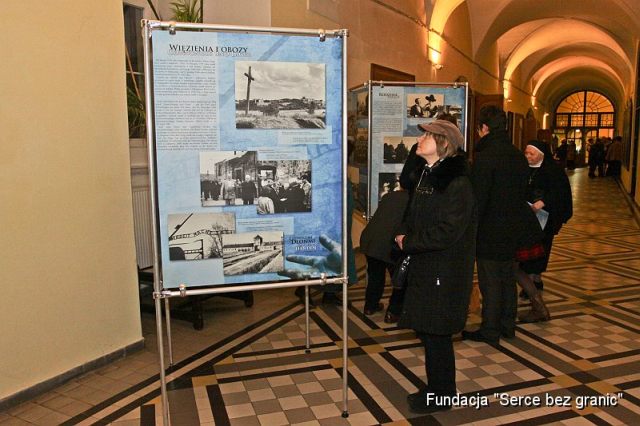
Exhibition “With Open Hands” presented in the Convent of the Ursuline Sisters in Wrocław, Poland.
NUREMBERG HOSTS EXHIBITION DEVOTED TO CARDINAL KOZŁOWIECKI
5th October 2012
On 4th October 2012, another exhibition devoted to Cardinal Adam Kozłowiecki SJ was opened in Germany. The exhibition entitled “With Open Hands” this time is displayed in Nuremberg and will be on view until 16th November.
The official opening was performed – among others – by Mr Bogdan Romaniuk, Deputy Chairman of the Cardinal Adam Kozłowiecki Foundation, and Rev. Marek Drwiła, who represented the Diocese of Sandomierz.
Special thanks are due to Mrs Genowefa Bialkovski, Honorary Member of the Cardinal Adam Kozłowiecki Foundation, without whose contribution the organisation of the exhibition would not have been possible.

Official invitation to the exhibition.

Promotional poster.
MISSIONARY MUSIC FESTIVAL IN HUTA KOMOROWSKA
29th September 2012
On 28th September 2012, the First Annual Cardinal Adam Kozłowiecki Missionary Music Festival was held at the Cardinal Adam Kozłowiecki Museum in Huta Komorowska.
Organizers of the event:
- Cardinal Adam Kozłowiecki Foundation
- Pontifical Mission Societies of the Diocese of Sandomierz
- Cardinal Adam Kozłowiecki Museum in Huta Komorowska
Each singer and band was required to perform at least one song of missionary theme, and each performance had to last less than ten minutes. The song contest was addressed to middle- and secondary-school pupils, and also to the disabled.
Applications to another edition of the Festival shall be sent via e-mail at fundacja@cardinalekozlowiecki.pl, or muzeum@cardinalekozlowiecki.pl. Next edition is scheduled to be held in 2013.
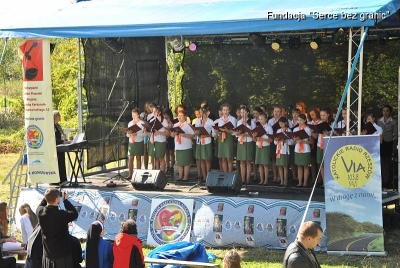
To view more pictures, please click on the link below.
http://www.cardinalekozlowiecki.pl/festiwal12/festiwal12.html
5TH DEATH ANNIVERSARY CELEBRATION OF CARDINAL ADAM KOZŁOWIECKI SJ
26th September 2012
Annually, the Cardinal Adam Kozłowiecki Foundation celebrates death anniversaries of “Missionary of Africa”. Consequently, on 25th September 2012, the 5th death anniversary of Cardinal Adam Kozłowiecki SJ was celebrated in Majdan Królewski. The anniversary celebration started with Mass at 10:00 a.m. in Majdan Królewski. Then, guests moved to the Gymnasium in Majdan Królewski.
Further ceremonies were presided over by Mr Bogdan Romaniuk, Deputy Chairman of the Cardinal Adam Kozłowiecki Foundation, and attended by a number of Church and government officials, in particular: His Excellency Bishop Krzysztof Nitkiewicz, Bishop of Sandomierz; His Excellency Bishop Edward Frankowski, one of the founder members of the Foundation; Mr Władysław Ortyl, a senator; priests from the Diocese of Sandomierz; local entrepreneurs who support the Foundation (e.g. Mr Grzegorz Lesiak, who represented SOTER GROUP).
On this occasion, the Cardinal Adam Kozłowiecki Foundation honoured two people with the “HEART WITHOUT BORDERS” Prize. The first prizewinner was Ms Wanda Błeńska, who had worked for forty-two years as a medical missionary in Africa. Due to her advanced age, Ms Błeńska could not participate in the celebrations held in Majdan Królewski. Therefore, there had to be organized an Internet link to Poznań, where she lives, and people could just log on to view the live Internet broadcast of the ceremonies.
The other prizewinner was Prof. Ludwik Grzebień SJ, an author of the newly published album, entitled “Apostle of Africa, Citizen of the World, Pole from Huta Komorowska: Cardinal Adam Kozłowiecki SJ, 1911-2007”.
“HEART WITHOUT BORDERS”, the exceptional award was first announced in 2011, bestowed on His Excellency Bishop Krzysztof Nitkiewicz, Bishop of Sandomierz; His Eminence Cardinal Medardo Mazombwe from Zambia; and Mr Jan Wieliński, former Polish Ambassador to Zimbabwe. It is given to people who have contributed to the development of missionary work, and whose hearts – by definition – are “without borders”.
The audience also had an opportunity to listen to a lecture given by Tomasz Sudoł from the Institute of National Remembrance. The lecture was centred on the former forced labour camp, which was located on the territory of the former palace and park complex of the Kozłowieckis in the village of Huta Komorowska.
As usual, such an event as a death anniversary celebration of Cardinal Adam Kozłowiecki was graced by the presence of members of the Board of the Cardinal Adam Kozłowiecki Foundation itself, i.e. Mr Dariusz Bździkot, Secretary; Mrs Elżbieta Wołosz, Treasurer; Mrs Anna Fila, Member of the Board.
Programme of the meeting:
10:00 a.m. Mass
11:30 a.m. Coffee break
12:15 p.m. Further ceremonies
- Awarding Ms Wanda Błeńska and Prof. Ludwik Grzebień SJ with “HEART WITHOUT BORDERS” Prize
- Promotion of the newly published album entitled “Apostle of Africa, Citizen of the World, Pole from Huta Komorowska: Cardinal Adam Kozłowiecki SJ, 1911-2007”.
- Lecture by Tomasz Sudoł from the Institute of National Remembrance
2:30 p.m. End of the 5th death anniversary special celebrations

To view more pictures, please click on the link below.
http://www.majdankrolewski.eu/sesja2012925/sesja2012925.html
CARDINAL ADAM KOZŁOWIECKI FOUNDATION INVITED TO PARTICIPATE IN 22nd ECONOMIC FORUM
3rd September 2012
The Cardinal Adam Kozłowiecki Foundation has been invited to participate in the 22nd Economic Forum, held from 4th September to 6th September 2012 in Krynica Zdrój, Poland.
The Foundation, represented by Mr Bogdan Romaniuk, Deputy Chairman, is listed among other guests and will participate in major events on the agenda.

One of the official invitations received by the Foundation in relation to the 22nd Economic Forum in Krynica Zdrój.
”CLARET GOSPEL” IN COMMEMORATION TO ”MISSIONARY OF AFRICA”
5th August 2012
On 4th August 2012, “Claret Gospel” gave their concert at the Cardinal Adam Kozłowiecki Museum in Huta Komorowska. At 4:00 p.m., more than two hundred people gathered to listen to gospel music, performed by the famous group from the Ivory Coast. As usual, such an event was graced by the presence of those affiliated with the Cardinal Adam Kozłowiecki Foundation itself, i.e. Mr Bogdan Romaniuk (Deputy Chairman), Mrs Elżbieta Wołosz (Treasurer), Mr Dariusz Bździkot (Secretary), Mrs Katarzyna Cesarz (Curator of the Cardinal Adam Kozłowiecki Museum), and Rev. Daniel Koryciński who – on behalf of Bishop Edward Frankowski, Chairman of the Cardinal Adam Kozłowiecki Foundation – greeted the audience and expressed gratitude for the organization of the event. The guest of honour was Fr Pacyfik Czachor, a missionary from the Democratic Republic of the Congo.
During their 45-minute concert, “Claret Gospel” performed songs in English, French, Polish, as well as their native languages, used only on the Ivory Coast.

“Claret Gospel” with the Cardinal Adam Kozłowiecki Museum in the background.
CLARET GOSPEL TO GIVE CONCERT AT CARDINAL KOZŁOWIECKI MUSEUM
29th July 2012
Claret Gospel, the famous band from the Ivory Coast, is going to perform in Huta Komorowska on 4th August 2012. The group performs gospel music and each year makes world tours. Their concert at the Cardinal Adam Kozłowiecki Museum in Huta Komorowska will begin at 4:00 p.m. and will be a part of their 2012 tour around Poland. On that day, Claret Gospel is also to perform in Majdan Królewski (concert preceded by Mass at 6:00 p.m.).
Enthusiasts of gospel music are warmly welcomed.
Note: The group collects donations after concerts. Please remember: EVERY LITTLE HELPS!
Promotional poster issued on that occasion.
WITHOUT BORDERS: WITH OPEN HANDS IN BRUSSELS
23rd June 2012
On 19th June 2012, on the initiative of the Cardinal Adam Kozłowiecki Foundation “SERCE BEZ GRANIC”, an exhibition devoted to Cardinal Adam Kozłowiecki SJ opened in the European Parliament in Brussels, Belgium. Bishop Krzysztof Nitkiewicz, Bishop of Sandomierz (Poland) and Prof. Jerzy Buzek, former President of the European Parliament, took Honorary Patronage over this historical event. The exposition, entitled “With Open Hands”, accompanied a conference session, which preceded the official opening.
The conference started at 4:00 p.m. and was presided over by Ms Elżbieta Łukacijewska, Polish Euro-MP, who – alongside with the Cardinal Adam Kozłowiecki Foundation – was an organizer of the event. During the conference, Mr Bogdan Romaniuk, Deputy Chairman of the Cardinal Adam Kozłowiecki Foundation, presented the Foundation’s work and familiarized the audience with its fundamental objective, which is to continue Cardinal Kozłowiecki’s legacy. Mr Romaniuk also expressed his gratitude to the institutions that actively support the organization (Ministry of Culture and National Heritage of the Republic of Poland, Branch of the Institute of National Remembrance in Rzeszów, Podkarpackie Province, Kolbuszowa County and Commune of Majdan Królewski) and local entrepreneurs.
The guest of honour was Mr Michael Gahler, MEP affiliated with the Pan-African Parliament. In his speech, Mr Gahler stressed the fact that Cardinal Kozłowiecki was indeed a man who tried to be close to the people whom he was sent to, and those who were in need.
Among other speakers were: Rev. Dr Bogdan Krempa who – on behalf of Bishop Krzysztof Nitkiewicz – expressed his gratitude for organizing the exhibition; Ms Renata Butryn, Polish MP affiliated with the Polish Parliamentarian Group on Africa; Fr Dr Stanisław Cieślak SJ, Exhibit Curator; Mr Marcin Krzanicki who represented the Branch of the Institute of National Remembrance in Rzeszów, Poland; and Mr Rafał Wieczyński, a Polish director who presented a promotional trailer for the forthcoming film about Cardinal Kozłowiecki. Mr Wieczyński was accompanied by his wife, Julita.
Prof. Jerzy Buzek, whose presence graced the event, also participated in the conference.
The ceremonial opening of the exhibition took place at 6:00 p.m. and was performed by Ms Elżbieta Łukacijewska and Mr Bogdan Romaniuk. On this occasion, in a gesture of friendship, Mr Romaniuk presented the former and Prof. Jerzy Buzek with a newly published album entitled “Apostle of Africa, Citizen of the World, Pole from Huta Komorowska: Cardinal Adam Kozłowiecki SJ, 1911-2007”.
Apart from the already mentioned guests, the event was attended by Mr John Zulu, a representative of the Zambian consulate in Brussels; Polish Euro-MPs (Jacek Kurski, Paweł Kowal, Bogusław Sonik, Artur Zasada, Jolanta Hibner, Joanna Skrzydlewska, Jan Olbrycht, Tomasz Poręba, Bogdan Marcinkiewicz, Filip Kaczmarek); Fr Thierry Monfils SJ; Ms Genowefa Bialkovski, Honorary Member of the Cardinal Adam Kozłowiecki Foundation; and a group of adolescents from Podkarpackie Province, the region Cardinal Kozłowiecki stems from.
In relation to the exhibition in the European Parliament, a number of Euro-MPs affiliated with the Pan-African Parliament were invited to co-operation, i.e. Ms Barbara Matera, Mr Giles Chichester, Ms Elisabeth Morin-Chartier.
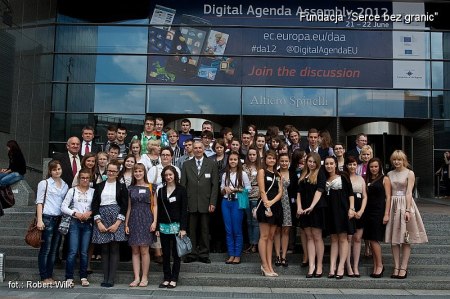
To view more pictures, please click on the link below.
http://www.cardinalekozlowiecki.pl/zdjbruksela/zdjbruksela.html
CHILDREN’S DAY CELEBRATION WITH CARDINAL ADAM AND AFRICAN RHYTHMS
2nd June 2012
In Poland, Children’s Day is celebrated on 1st June. The International Children’s Day was introduced in Poland in 1952. It coincides with the beginning of summer and it is usually treated as a holiday, as it takes place near the end of the school year. On this occasion, schools usually organize special activities and trips, and the first week of June is a time of festivities organized in parks and entertainment centers for children.
Almost one hundred pupils visited the Cardinal Adam Kozłowiecki Museum on 1st June. Apart from the museum exhibition, our visitors watched films and participated in skills development workshops. In the one-day workshop, Mrs Kazimiera Zagroba, a local amateur painter, taught our visitors to paint, while Mrs Maria Perlicka taught them to crochet.
Our young visitors could also draw African animals with sidewalk chalk and play volleyball, with the accompaniment of African music being played in the background.
EXHIBITION DEVOTED TO CARDINAL KOZŁOWIECKI TO OPEN IN EUROPEAN PARLIAMENT
2nd June 2012
In 2011, invited by the Cardinal Adam Kozłowiecki Foundation ”SERCE BEZ GRANIC” to co-operation, Ms Elżbieta Łukacijewska, MEP, committed herself to organizing an exhibition devoted to Cardinal Adam Kozłowiecki SJ in Brussels. Consequently, the exhibition, entitled “With Open Hands”, is going to open on 19th June 2012 in the European Parliament. Bishop Krzysztof Nitkiewicz, Bishop of Sandomierz (Poland), and Prof. Jerzy Buzek, President of the European Parliament in the years 2009-2012, have taken the Honorary Patronage over the event.
It is worth mentioning that the exposition was first displayed in Dachau, Germany, on the territory of the former Nazi concentration camp, and it was on view from 25th October 2011 to 8th January 2012. The very same display was then presented in the Polish Parliament in Warsaw.
CARDINAL KOZŁOWIECKI MUSEUM BUSTLING WITH LOCAL COLOUR
26th May 2012
In February 2012, the Cardinal Adam Kozłowiecki Museum hosted a temporary exhibition devoted to the local traditions associated with the cultivation and processing of flax.
Flax is a crop plant. For a number of centuries, clothes, threads and ropes have been fabricated from its stem, while its seeds have been used for extracting linseed oil. The exhibition itself attempted to trace the local traditions and customs associated with flax, widely cultivated in the area. It was on view from 16th March to 26th April.
Another special display featuring local colour is scheduled to open on 27th May 2012. This will be an art exhibition presenting landscape paintings, with a large dose of still-life and religious aspects, since the author’s inspirations come from pilgrimages. The author, Mrs Kazimiera Zagroba, is an amateur painter. Mrs Zagroba has been painting for two years since she entered her retirement as a shop assistant.
The official opening of the exhibition will take place at 4:00 p.m. in the cellars of the museum building. Fans of modern landscape paintings are warmly welcomed.
The exhibition will be on view until 30th June 2012.
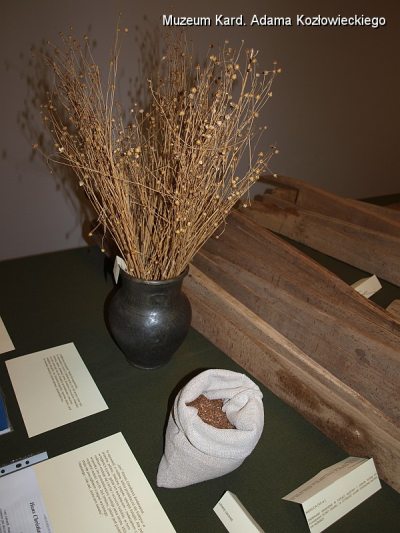
Dried flax.
To view more pictures of the exhibition devoted to the local traditions associated with the cultivation and processing of flax, please click on the link below.
http://www.cardinalekozlowiecki.pl/len12/len12.html
“[…] pray for us sinners, now and at the hour of our death.”
5th May 2012
By tradition, the Catholic Church dedicates particular months of the year to a certain devotion. In May, it is the Blessed Virgin Mary, the Mother of Jesus Christ. Therefore, special May events are held in honour of Our Lady, such as public recitation of the rosary and other daily prayers to the Blessed Virgin.
The Cardinal Adam Kozłowiecki Museum serves as a venue for May events and hosts concerts dedicated to Our Lady. The concerts are held on Saturdays and start at 5 p.m.
CARDINAL KOZŁOWIECKI HONOURED IN POLISH PARLIAMENT
21st April 2012
On 11th April 2012, on the joint initiative of the Cardinal Adam Kozłowiecki Foundation “SERCE BEZ GRANIC” and MPs affiliated with the Parliamentarian Group on Africa, an exhibition devoted to Cardinal Adam Kozłowiecki opened in the Polish Parliament in Warsaw. Ms Ewa Kopacz, Speaker of the Polish Parliament, and Cardinal Kazimierz Nycz, Metropolitan of Warsaw, took the Honorary Patronage over the event.
The exposition, entitled “With Open Hands”, was officially opened by Mr Eugeniusz Grzeszczak, Deputy Speaker; Mr John Abraham Godson, MP; Mr Killion Munyama, MP; Ms Renata Butryn, MP and Exhibit Curator in the Polish Parliament; Mr Jan Wieliński, former Polish Ambassador to Zimbabwe, and Mr Bogdan Romaniuk, Deputy Chairman of the Cardinal Adam Kozłowiecki Foundation.
This landmark event was attended by a number of representatives of the government and local authorities, members of the Foundation’s Board, children from the commune of Majdan Królewski and mainstream journalists. The honorary guests were the Cardinal’s relatives and former Dachau prisoners, among whom was Mr Jerzy Kowalewski, one of the speakers at the opening ceremony.
The exhibition accompanied a conference during which Mr Bogdan Romaniuk presented the Foundation’s work and expressed his gratitude to the parliamentarians who organized the event. Special thanks went to Bishop Krzysztof Nitkiewicz, Bishop of Sandomierz, and Bishop Edward Frankowski, Chairman of the Cardinal Adam Kozłowiecki Foundation, for their dedication to the organization’s work. Among the main points of the conference were a lecture given by Fr Stanisław Cieślak SJ, Exhibit Curator, and a promotional trailer for the forthcoming film about Cardinal Kozłowiecki, directed by Mr Rafał Wieczyński.
The exhibition was on view until 20th April.
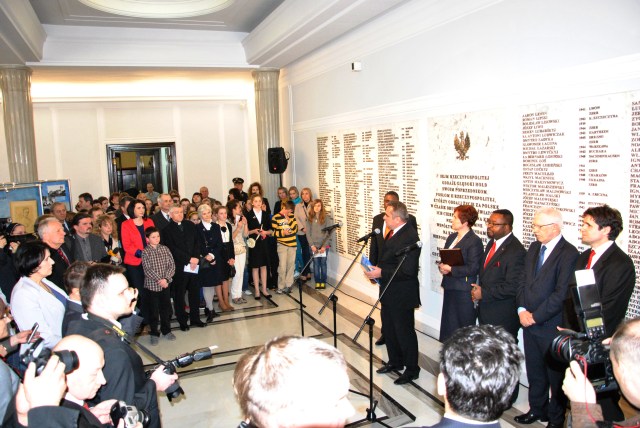
Official opening of the exhibition.
From the left: Mr Killion Munyama – MP affiliated with the Parliamentarian Group on Africa; Mr Eugeniusz Grzeszczak – Deputy Speaker of the Polish Parliament; Ms Renata Butryn – MP and Exhibit Curator in the Polish Parliament; Mr John Abraham Godson – MP affiliated with the Parliamentarian Group on Africa; Mr Jan Wieliński – former Polish Ambassador to Zimbabwe, and Mr Bogdan Romaniuk – Deputy Chairman of the Cardinal Adam Kozłowiecki Foundation.
To view more pictures, please click on the link below.
http://www.cardinalekozlowiecki.pl/wystawasejm/wystawasejm.html
LECTURE HALL NAMED AFTER CARDINAL ADAM KOZŁOWIECKI
13th March 2012
The Senate of Jesuit University Ignatianum in Kraków, Poland, decided to name one of the lecture halls after Cardinal Adam Kozłowiecki SJ and in this way honour this great and – without doubt – historical figure. As a result, lecture hall No. 412 will henceforth be called the Cardinal Adam Kozłowiecki Lecture Hall.
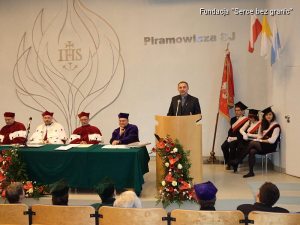
To view more pictures, please click on the link below.
http://www.cardinalekozlowiecki.pl/ignat12/ignat12.html
THE MUSEUM TEEMING WITH LIFE
15th February 2012
Since its opening (September 2011), the Cardinal Adam Kozłowiecki Museum has attracted thousands of visitors from Poland and abroad. Being open to the general public five days a week, the Museum gives an opportunity to be explored in detail not only by the local people but also tourists and, most important of all, everyone interested in Cardinal Kozłowiecki.
One of our primary aims is to make the Museum attractive for visitors; however, we shall never forget about its fundamental character. Therefore, the Museum serves as a venue for various events which are educational in nature. For instance, those who wished to spend their winter holidays in an unusual way awaited a wealth of attractions. To number just a few, we organized a series of workshops (our participants were taught how to make African jewellery, animals and pottery out of clay), horse riding lessons and a chess tournament. In addition, it was possible to watch short films about Cardinal Kozłowiecki’s life and missionary work in Africa.
In a spirit of solidarity with the orphaned children living in Kasisi Children’s Home, our youngest visitors wrote touching letters to their African peers and made beautiful drawings. Both the letters and drawings (their scanned copies) were sent via e-mail to Africa.

To view more pictures, please click on the links below.
http://www.cardinalekozlowiecki.pl/feriemuzeum12/feriemuzeum12.html
http://www.cardinalekozlowiecki.pl/feriemuzeum122/feriemuzeum122.html
“LIFE LEVELS ALL MEN. DEATH REVEALS THE EMINENT”
27th September 2011
The Cardinal Adam Kozłowiecki Museum opened to the public on 25th September 2011. The official opening was performed – among others – by: His Eminence Cardinal Medardo Mazombwe, Archbishop emeritus of Lusaka; His Excellency Bishop Krzysztof Nitkiewicz, Bishop of Sandomierz; His Excellency Bishop Edward Frankowski, Chairman of the Cardinal Adam Kozłowiecki Foundation “SERCE BEZ GRANIC”; and Mr Bogdan Romaniuk, Deputy Chairman of the Foundation.
This landmark event was attended by c. 2 000 people, among whom were: representatives of the Church in Africa; Mr Jan Wieliński, former Polish Ambassador to Zimbabwe; Polish parliamentarians and government officials; representatives of the German consulate in Poland; representatives of the Polish consulate in Zambia; Sister Oktawia, the Cardinal’s cousin; members of the local congregation.
The museum building itself used to be a hunting lodge, part of the Kozłowieckis’ country estate in the village of Huta Komorowska. In the years 2009 – 2011, it was undergoing complete renovation works, and eventually opened to the public on 25th September 2011, at the 100th anniversary celebration of the birth of Cardinal Adam Kozłowiecki.
The museum houses and exhibits a fine collection of objects related to Cardinal Kozłowiecki, for example photographs of young Adam with his brothers, Jerzy and Czesław; his parents, grandmother, and the manor house, which does not exist any more. There have also survived a number of mementoes of the period of the Second World War; Father Adam Kozłowiecki spent the war years in incarceration in Auschwitz and Dachau, Nazi concentration camps.
Also, the building is to serve as the headquarters of the Cardinal Adam Kozłowiecki Foundation “SERCE BEZ GRANIC”.

Clay bust inside the Cardinal Adam Kozłowiecki Museum in Huta Komorowska.
Just a few days before the official opening.
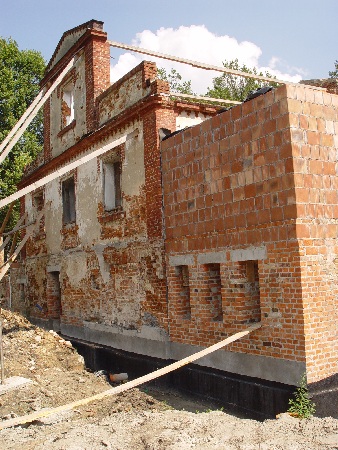
Undertaking renovation works.
The beginnings…





